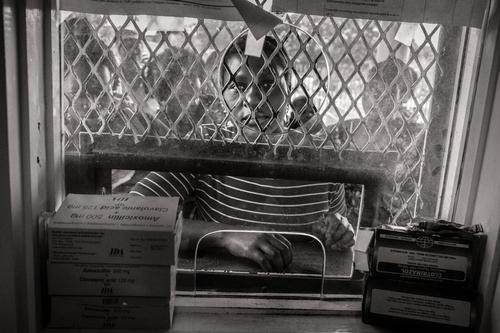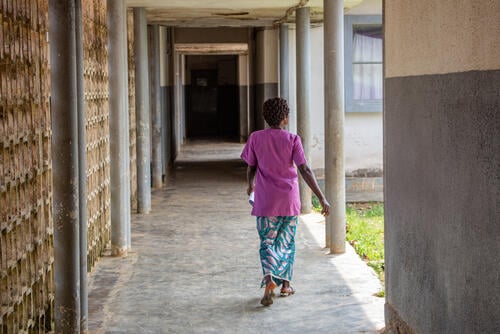Most in need of HIV care, but with low access
Sex workers and men who have sex with men (so called “key populations”), have both a higher risk of contracting HIV
New medications to prevent HIV negative people from contracting the virus (Pre-Exposure Prophylaxis, or PreP) are a promising tool to curtail the progression of the HIV pandemic, but access remains limited in the most affected areas of Southern Africa.
The Beira corridor is a strip of land running from the Indian Ocean port of Beira, Mozambique's second city, to Zimbabwe’s eastern border and up to Zambia and Malawi, all three land-locked countries. Mozambique’s mining boom has attracted migrant workers and sex workers from the subregion.
In order to find innovative ways to increase both access to life-saving ARVs and adherence to care and PreP for the region's key populations, MSF launched an ambitious “Corridor” project in January 2014. Spanning Mozambique and Malawi, with recent extensions into Zimbabwe.
When PreP is rolled out in Sub-Saharan Africa, it will have a very different face than in the West. A tough one, like Mary’s.
Mary is from Zimbabwe, but she lives in Beira, Mozambique. On the morning we meet, she is sitting on the cement floor outside the guest house where she lodges with a dozen other Zimbabwean sex workers. Her arm is in a cast. “Who did that to you?”, asks Edna, MSF peer educator. A shrug. “My boyfriend. We had an argument”. “You know you should go to the police, right? He can’t do that to you. That’s human rights.” Another shrug from Mary. “We’ll see.”
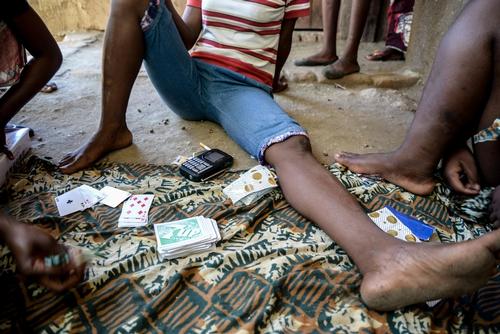
Beira is a busy harbor city, the beginning and end of truckers’ routes distributing goods throughout Southern Africa. For the women, this is where the money is – not in their villages in impoverished Zimbabwe. Although “money” is a loose definition: when the intercourse is priced as little as 50 meticais (1 USD), they need many clients to be able to send money to their families back home. “It’s purely business, you know, no time for romance. The guy needs to be ready from the start. If he’s not done quickly, he pays more, or too bad for him”, explains Edna.
It’s night time and we’re visiting Beira’s hot spots. The first neighbourhood looks quaint in the dark: a few shops of corrugated iron sheets, their feet in the sand, standing modestly under tall coconut trees. “It’s mostly the Mozambican girls who work here”, explains Sandrine Leymarie, MSF’s patient support officer. She points at an open room behind the shop, its ground littered. This is the place where sex transactions take place, the grim reality behind the deceptive quaintness.
Further downtown, on Avenida Robert Mugabe, groups of women, short skirts and open shirts, wait for their clients; they’re mostly from Zimbabwe. A 2012 survey counted 714 professional sex workers in Beira – meaning women who have seven or more clients a month. Within the first 18 months of activity, MSF’s project in the city had enrolled over 600 sex workers (90% of the number found in the survey), thanks to a group of peer educators actively engaged with a maximum of 50 sex workers. However, if those making ends meet with occasional sex work are counted, the number of sex workers in Beira is likely to shoot upwards to 7,000.
It’s Monday, a slow night, but still, transactional sex is everywhere. No condoms are readily available though; if MSF or another NGO don’t distribute them for free, the sex workers need to spend their own money to purchase their only protection from HIV. No wonder then that the virus is allowed to run free: 30% of the women surveyed by MSF who were HIV negative a year ago had contracted the virus within twelve months; the highest rate of seroconversion ever registered in Beira project.
The lack of free condoms, and the difficulty of making clients wear them, is but one obstacle to accessing HIV protection for the women at very high risk of infection. The many Zimbabwean sex workers are especially reluctant to go to health centres, knowing that most health workers there will automatically assume what their profession is, and they will face stigma and discrimination.
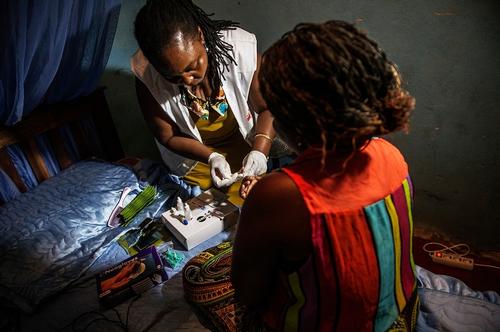
They also don’t have access to post-exposure prophylaxis medications that can prevent them from contracting HIV after unprotected intercourse. For this reason Gloria, a Zimbabwean who has been living with HIV for over ten years, regularly travels back home or has someone bring her ARVs to Beira. She’s proud to be virally suppressed, and therefore her 8 months old baby is HIV negative. But this is not sustainable for the hundreds of foreign women in need of protection against HIV. “So, do we need to first treat a sick health system?” asks Christophe Cristin, MSF’s field coordinator in Beira.
There is wide consensus amongst HIV policy makers and donors that most-at-risk groups should be a target for ambitious projects against HIV as they are key to putting the epidemic under control. It’s not only a matter of promoting condom use, but also to increase still low coverage of antiretrovirals, as optimal treatment drastically reduces the risk of transmitting the virus to others. But “how to do it?” remains an unanswered question.
MSF is testing ways to increase access and improve adherence to treatment through the “Corridor” project. Between the locations in Mozambique and Malawi, MSF’s projects support care for over 3.800 sex workers and 4.500 truck drivers (many of whom are their clients). It has also started working with men who have sex, an extremely hard to reach group because of intense discrimination and, criminalization of their way of life in Malawi and, until recently, Mozambique. It aims at reaching out to 200 of them to offer early treatment and ensure adequate care. “Our dream is to find a way to ensure continuity of care for these vulnerable and highly mobile groups”, explains Marc Biot, MSF’s coordinator of operations for Southern Africa.
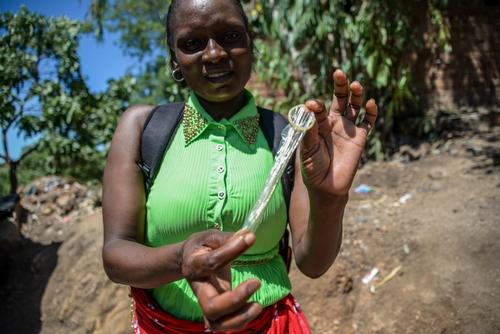
The first hurdle, though, came from our own local teams’ acceptance to working with highly stigmatized populations. In Beira, MSF made headway by enrolling as peer educators not only nine sex workers, but also two men from Lambda, the only Mozambican association for men who have sex with men. Just as challenging was gaining the trust of these patients, who are sadly used to stigma and discrimination and wary of outside actors. “It’s tough, you know. At the beginning you get insulted a lot. The girls will call me at 4am with a question, and complain to my boss if I don’t pick up the phone. But now I have my techniques, I know how to handle them and it’s much better. They need us, you know?” says Patty Marume, MSF’s counsellor in Beira.
Reaching out to the most vulnerable requires considerable investment in time and human resources. Who else but a peer educator, herself a former or active sex worker, can understand where they come from, and mimic crouching in the street, in broad daylight, the technique to insert a female condom under the roaring, knowing laughs of those preparing a tough night with 20 clients?
“I’m proud of working as a peer educator: I feel like I’m a good example to the other sex workers,”says Cecilia Mondar Khanje, MSF’s peer educator in Zalewa, Malawi. “I’m always happy that I can help them because I know I’m part of them, I’m in their shoes. The girls know me, they see me with them every day, and as a result they trust me more than they would trust anybody else. And it’s a very difficult to gain their trust!”
NB: names of the sex workers have been changed in the story.



